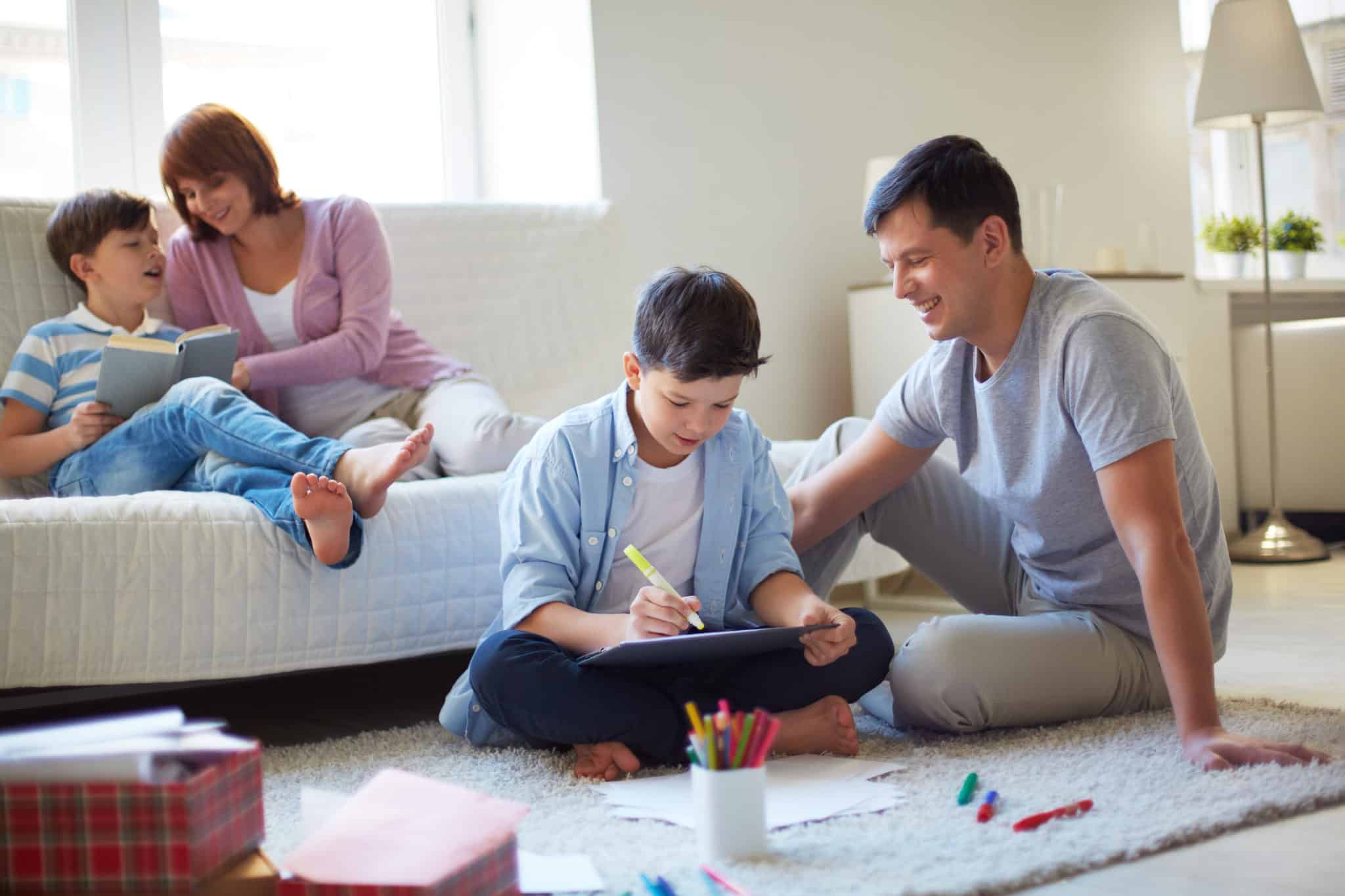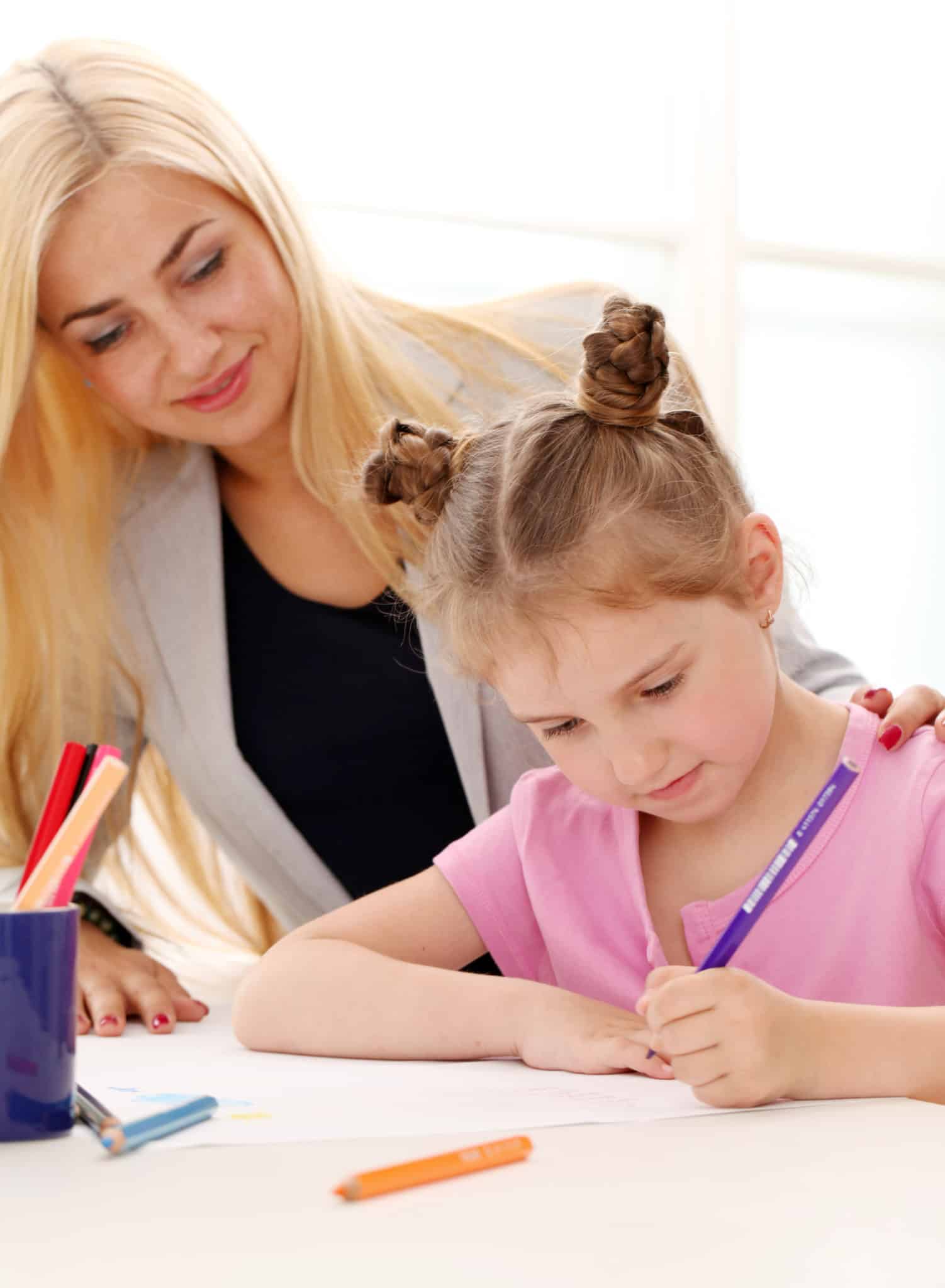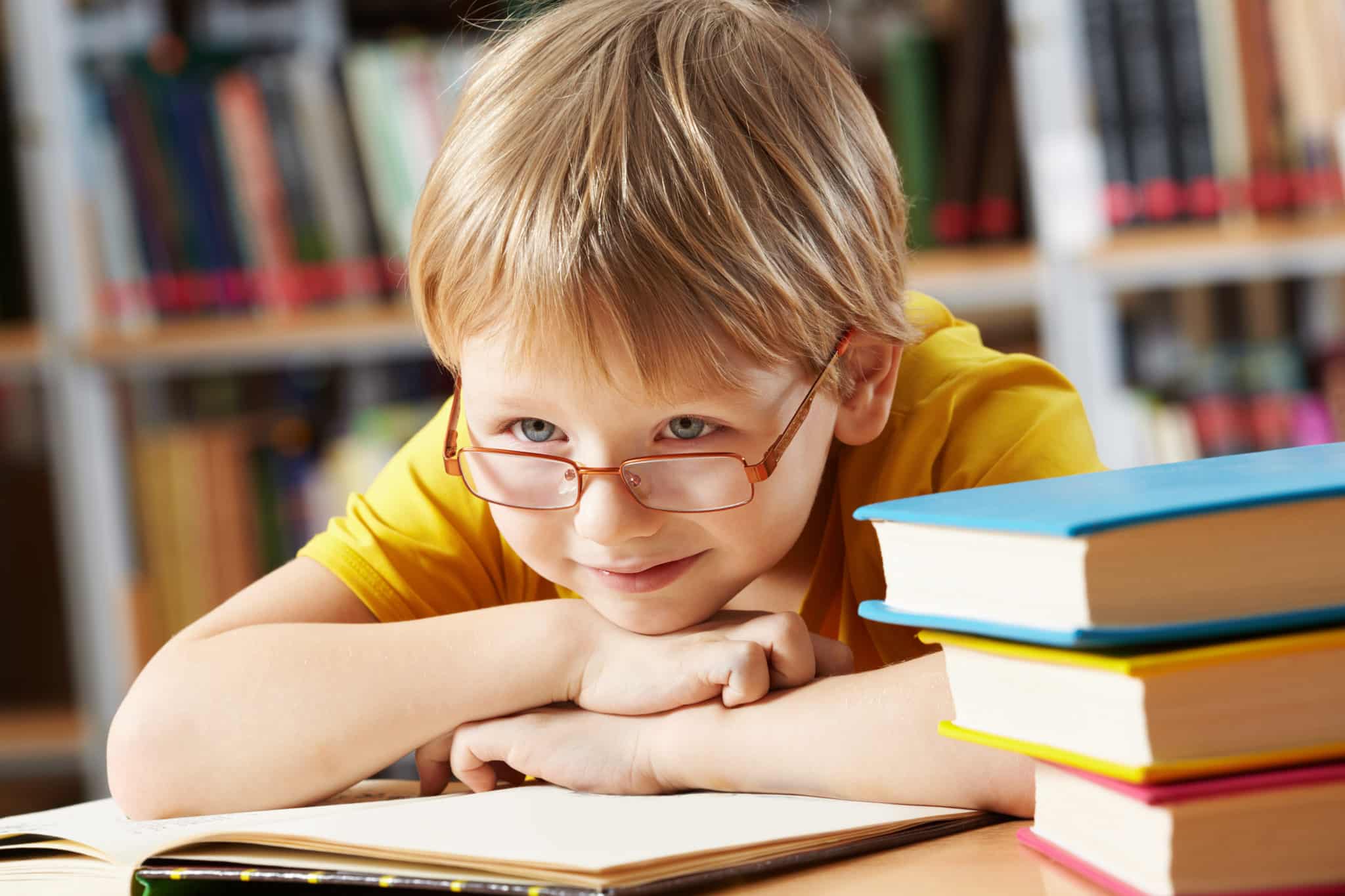1. How can you make children feel safe at the moment?
Having an open, supportive discussion with your children can help them understand, cope and even make a positive contribution for others. Start by inviting your child to talk about the issue. Find out how much they already know and follow their lead. If they are particularly young and haven’t already heard about the outbreak, you may not need to raise the issue.
Look at the conversation as an opportunity to convey the facts and set the emotional tone. Your goal is to help your children feel informed and get fact-based information that is likely more reassuring than whatever they’re hearing from their friends or on the news. The main points are:
- Reassure your child this is a virus not the plague, the fact is that most people only get a mild illness and fully recover within a few weeks.
- That children very rarely get sick and when they do it is usually just like a cold. Describe what the main symptoms are and encourage them to let you know if they feel unwell.
- We all have to change our behaviours, practice fist bumps, wash our hands more and practice not touching our face as much.
- Tell them we are taking the coronavirus seriously but that we are not panicking, if we get it – we get it – and we will beat it.
- Make sure they understand that people who are older (like grandparents) or who have a compromised immune system or heart or lung issues, are more at risk and we just have to be extra careful with them. Coronavirus is going to run its course. This is not the end of the world. Therapeutic drugs will be out in a few months and we will probably have a vaccine by next year.

2. How do you keep your child motivated to continue with their schoolwork from home?
My 5-step plan to keep your kid motivated for school during the shut down.
1. Set Goals – make a list of short-term goals and one for the long-term goals. Make sure the goals are reachable but require effort to obtain.
2. Make a Plan – in order to reach goals, you need a plan. Help your children create a strategy for reaching their goals. Make a step-by-step plan to reach them.
3. Celebrate Accomplishments – when your children accomplish their goals, let them know that you are proud of them and celebrate these successes together – a sense of accomplishment is the best reward.
4. Encourage Them. Let your children know you believe in them. Tell them how great they are going to do. Dismiss any self-doubt or fears they may have
5. Take an Interest. Learn about your child’s interests. and talk to your child about them and listen. It will show your children that you care and that they are free to talk to you about their interests.
3. What are the signs to look out for to determine if your child is struggling?
Be concerned if children become a little bit more irritable, have more temper tantrums or meltdowns, become a little more clingy, more problems with sleeping, or if they see children have a little bit harder time with concentration and attention. That could manifest itself in forgetfulness or issues with completing chores or homework.
Remember that everyone reacts differently in stressful situations. Depending on their personality, disposition or temperament, some children are naturally more anxious than others, and coronavirus may affect them a lot. Keep an eye out for highly anxious or unusual behaviour in your children.
Older children can show these signs too or they may also appear distracted, have trouble concentrating or become forgetful. Some children may develop repetitive or obsessive behaviours, such as excessive fear of germs or contamination. If any of these signs persist over 2/3 weeks then you should arrange a Telehealth consultation with your GP.
4. How important is it for parents to keep calm in front of their children?
Extremely important as kids will take their lead from us, tell them we are taking the coronavirus seriously but that we are not panicking, if we get it – we get it – and we will beat it. This is not the end of the world.
Also let them know that this is not the global financial crisis, the stock market will bounce back, this is not a financial crisis, and everyone needs to remember that our banking system is strong. China is ramping up its factories again, but the reality is that 2020 will be slow.
Explain all the hard work that is happening here to protect them, all the doctors and nurses who are here to help us, that we have good hospitals and medicines, highlight how everyone across the world is working together to look after each other, to find vaccines and treatments.
If they are concerned about grandparents or others, validate this as a sign of how caring and loving they are and focus on positive messages about the medical care and support available.

5. As we are all spending so much time together at home what advice do you have for both parents and children to exist together happily?
Navigating a new reality of remote school work, lots of family time, and a ton of uncertainty about what happens next is a major challenge for everyone.
Show empathy for how their lives are changing. For families not used to this much together time, irritability and tempers may flare and the emotional temperature may rise. Setting and enforcing rules for calm, respectful interactions in your home promotes critical stability and mental health in your children.
Respect each others need for time and space. Allocate ‘we’ time and allow ‘me’ time. Schedules should focus on keeping the children active, through backyard play, walks, bike rides, table tennis, totem tennis, trampolines, workout DVDs. It is important for everyone to stick to a routine around meals, cooking, chores and exercise.
As the adult carers, make a schedule, where you assign them jobs and roles, and ways they can look after themselves – it will build resilience and give them a sense of control and agency. Have regular family meetings to plan the days and do an emotional check in on each person.
Be empathetic, resolve conflicts quickly and create rituals that will reinforce their sense of belonging and give them something to talk about when this is all over.
6. It’s all doom and gloom online with lots of false information, should the amount of time children are spending on devices be limited?
Efforts to stem the spread of COVID-19 have disrupted family life, leaving millions of parents around the world to grapple with home schooling, online learning, and the anxiety surrounding social distancing and quarantines. As a result, it’s natural that the amount of time children spend watching screens will increase.
The experts at Common Sense Media, a nonprofit advocacy group focused on media and tech use, are not advocating that you throw all your rules out the window, but you can definitely be more flexible.
While parents are trying to adjust to the new circumstances, it’s fine to allow more screen time than usual, as long as it’s age-appropriate. While generally screen time for children under 18 months is still not advised, depending on individual circumstances, a little screen time won’t hurt them as long as you’re interacting with them in other meaningful ways throughout the day. There is no such thing as a perfect parent, especially now.
The number one job right now is putting our own oxygen mask on first (meeting our own emotional needs) so that we can clear our heads up and effectively manage the households. If this means having your infant watch an episode of Sesame Street – parents should not beat themselves up. But use the time well. Exercise, do yoga, have a virtual coffee with a friend, or message someone. Avoid the things that might stress you out, such as watching the news.
7. How can you help your child if they are having trouble sleeping?
Attend to some basic sleep hygiene. Make sure that they dim the lights in their room 30 minutes before they go to bed, ensure that they go to bed and wake up at the same time each day, make sure their room is cool, dark and quiet, try and minimise anxiety by having a wind-down ritual (eg: read a story) avoid stimulants drinks and ensure the consumption of sleep-inducing foods like bananas, a handful of almonds and miso soup.
8. How important is exercise at the moment?
When we exercise the body releases endorphins – the body’s natural opioids. It is a natural way to relive pain, stress and anxiety and to make us feel good. Exercise is something that is within our own control which can help us build our own resilience.
Exercise also injects a number of key neurotransmitters, like the master molecule of mood – serotonin, which keeps us happy and calm and dopamine which keeps us motivated and goal focused. So exercise, along with a healthy diet and a good night’s sleep are the building blocks of well-being during the coronavirus shutdown.
9. How do we get across to teens in particular how serious this is without scarring them?
The situation is serious and this is no time to sugar coat the message. Teenagers need to know that the pandemic is no joke, and their actions today will save lives tomorrow.
Rather then a lecture, there is power in the narrative and I think we need to share with them three things. Firstly, about how Italy went on 15 February from three cases and no deaths – to at the time of writing over 100,000 cases and 10,000 deaths in just over 45 days.
Secondly, that many of the people who died were elderly or had underlying medical conditions. Thirdly, that unless we practice washing our hands, not touching our mouth, nose or eyes and social distancing, then the same thing could happen here and one of the people who die may be their grandparent. It needs to be as blunt as that.

10. School is a safe place for some students who face violence or abuse at home, what advice do you have for families in this situation?
In all states and territories, the normal systems remain in place to maintain and enhance child protection services as well as checks on known families. If people are concerned about what is going on in their particular family or any one else’s then they should call triple-0.
11. How can parents maintain their own mental health?
Fear and anxiety are normal, natural responses to challenging situations infused with danger and uncertainty. It is totally normal and natural for our minds to be telling us all kind of scary stories at this unusual time.
Our minds hate uncertainty and therefore we will always fill in the gap with lots of ‘what if ‘stories. It likes to be like a fortune teller that always predicts the worst – but if these stories makes us feel even terrible, then it is not helpful to reread them or add new chapters.
So instead of getting caught up in these stories, that our mind keeps telling us – we can instead of buying in to them, just notice and name them. Say to yourself ah, here’s the …. whatever it is story – and notice how often it loops around. That way we can recognise that we are not our thoughts, rather we are the observer of our thoughts.
Thoughts will naturally arise from time to time – but we can and should make room for these thoughts and just let them pass on by – like clouds in the sky. Our wisest thinking comes to us when we are in a more calm and centred space.
So the single most useful thing anyone can do in right now, is to focus on what we can control, that is our well-being and that of our family. Focus on keeping everyone, (including yourself) busy, well-rested, exercised and healthy. Because what we do – here and now – can make a huge difference to ourselves, and anyone living with us, and a significant difference to the community around us.
12. As children can no longer have friends around, what can replace this social interaction?
Hanging out on line via Skype, FaceTime etc is not a perfect substitute for real face-to-face interaction. Virtual quality time lacks many of the benefits of physical proximity and human touch. Our non-verbal behaviour or body language is not being transmitted as easily.
Spending time together over Skype is unlikely to feel as satisfying as being in the same room. But it’s better than nothing. Allowing specific times to play online with friends is fine.

13. What can you tell children about the situation long term if they are looking for some sort of reassurance about their future?
My experience is that the young people will take their lead from us. We need to let them know that we are taking the coronavirus seriously but we are not panicking; history suggests the virus will eventually peak – then schools will eventually restart, the Australian public will stop working from home, start travelling again and economic activity will return.
Many experts say that therapeutic drugs may be out in a few months and we may have a vaccine by next year. This is not downplaying what is happening, it is just context. In the meantime, let’s all acknowledge that this transition is daunting. It’s unfamiliar. And it’s also critically important to reduce the spread of the virus. Rates of infection are less today in Australia (at the time of writing), so progress is being made in the right direction. Our job as parents is to be purveyors of hope.
14. Any other advice?
Talk about what is happening with the older kids, as information is power. Families and caregivers of children and young people should discuss news of the virus with those in their care in an open and honest way. Try to relate the facts without causing alarm, and in a way that is appropriate for their age and temperament.
It is important to listen to any questions they may have, to let them know that they are safe and that it’s normal to feel concerned. If the media or the news is getting too much for them, encourage them to limit their exposure. This video from Beyond Blue has some useful tips for talking to young people about scary stuff in the news.
 Dr Michael Carr-Gregg is one of Australia’s highest profile psychologists, author of 14 books, broadcaster and a specialist in corporate mental health, families, parenting, children, adolescents and the use of technology for mental health.
Dr Michael Carr-Gregg is one of Australia’s highest profile psychologists, author of 14 books, broadcaster and a specialist in corporate mental health, families, parenting, children, adolescents and the use of technology for mental health.
Dr Carr-Gregg is available for 30 minute Facetime Consultations which you can book here
